Partners EHRI Preparatory Phase (EHRI-PP)
During the Preparatory Project (PP) phase (2019-2023), EHRI had 15 partners from 13 countries, representing archives, libraries, museums and research institutions.
KNAW-NIOD Institute for War, Holocaust and Genocide Studies (NL)
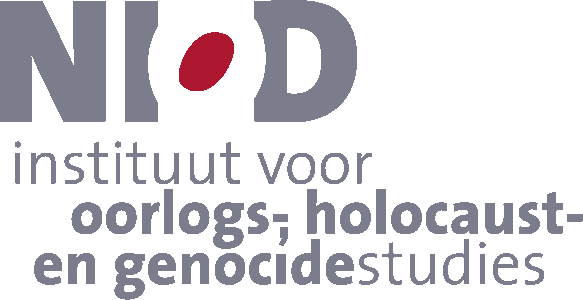 NIOD is a knowledge and information centre on war and large-scale violence in the 20th and 21st century. NIOD’s area of work focuses on research into the effects of wars, the Holocaust and other genocides on individuals and society.
NIOD is a knowledge and information centre on war and large-scale violence in the 20th and 21st century. NIOD’s area of work focuses on research into the effects of wars, the Holocaust and other genocides on individuals and society.
NIOD is coordinator of EHRI and also leads the work on Finance, Implementation, and Impact, innovation and sustainability. KNAW-NIOD and KNAW-DANS are one partner in EHRI.
Belgian State Archives/CegeSoma (BE)
The Belgian State Archives, a scientific institution of the Belgian federal state, obtain and preserve archive documents that are at least 30 years old from courts, tribunals, public authorities, notaries and from the private sector and private individuals that have played an important role in society. These archives are made accessible for research by means of inventories, research guides and digital tools.
The Belgian State Archives keep the key archival collections for the study of the Holocaust and its aftermath in Belgium, as the complete archive of the Military Justice, which was in charge of punishment of collaboration after 1944. The War Victims archives section keep important collections on camps where people from Belgium were interned and personal files of the post-war schemes to compensate the resistance fighters and war victims, including the Jews.
Within the State Archives, operational directorate 4, the Study Centre War and Society (CegeSoma), will perform the tasks in this project. CegeSoma, is a specialized research and documentation centre on the Second World War created in 1967 and integrated in the Belgian State Archives in 2016. Next to collecting archives from private individuals and private organisation and making them accessible, this Centre has a built over 50 years a specialized library and has moreover conducted research on different aspects of the Second World War, including the Holocaust. CegeSoma is integrated in national and international research networks and is involved as coordinator and partner in national and international research projects on both World Wars and post-war memories.
Since the second half of the 1990’s, CegeSoma is developing tools for digital access to its collections and digitized parts of the collections, starting with photos. By means of specific projects financed by the Belgian federal science policy office, CegeSoma is involved in digital humanities research. CegeSoma was a partner in EHRI 1 and EHRI 2.
In EHRI PP CegeSoma leads the legal and governance work.
Square de l’aviation 29 1070 Bruxelles Phone : 02 556 92 11 email : cegesoma@arch.be
Masaryk Institute and Archives of the Czech Academy of Sciences (CZ)
 Founded by the first Czechoslovak president Thomas G. Masaryk in 1932 and joined with the Archives of the Czechoslovak Academy of Sciences later, the institute is a leading Czech research organisation with focus on the history of the 19th and 20th centuries.
Founded by the first Czechoslovak president Thomas G. Masaryk in 1932 and joined with the Archives of the Czechoslovak Academy of Sciences later, the institute is a leading Czech research organisation with focus on the history of the 19th and 20th centuries.
It combines primary historical research with archival experience. In line with Masaryk’s legacy, it aims to ask new questions on difficult and complex topics in Czech and European modern history, including war, mass violence and genocide, migration and refugees, as well as nationalism and various forms of racism.
The Masaryk Institute leads the work on sustainability.
Read more about the Masaryk Institute
Yad Vashem, the World Holocaust Remembrance Center (IL)
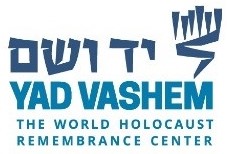 Yad Vashem, the World Holocaust Remembrance Center, was established by the Israeli Parliament in 1953. Located on the Mount of Remembrance in Jerusalem, Yad Vashem is dedicated to Holocaust remembrance, documentation, research and education. Through the International School for Holocaust Studies, the Museum Complex, the International Institute for Holocaust Research and Publications Department, the Archives with over 210 million pages of documentation, the Hall of Names, the Library, and its monuments and memorials, Yad Vashem seeks to meaningfully impart the legacy of the Shoah for generations to come. Every year, some 1,000,000 people visit Yad Vashem’s 45-acre campus, and millions more explore various aspects of the Holocaust through Yad Vashem's activities around the world and online. Drawing on the memories of the past, Yad Vashem aims to strengthen commitment to Jewish continuity and protect basic human values.
Yad Vashem, the World Holocaust Remembrance Center, was established by the Israeli Parliament in 1953. Located on the Mount of Remembrance in Jerusalem, Yad Vashem is dedicated to Holocaust remembrance, documentation, research and education. Through the International School for Holocaust Studies, the Museum Complex, the International Institute for Holocaust Research and Publications Department, the Archives with over 210 million pages of documentation, the Hall of Names, the Library, and its monuments and memorials, Yad Vashem seeks to meaningfully impart the legacy of the Shoah for generations to come. Every year, some 1,000,000 people visit Yad Vashem’s 45-acre campus, and millions more explore various aspects of the Holocaust through Yad Vashem's activities around the world and online. Drawing on the memories of the past, Yad Vashem aims to strengthen commitment to Jewish continuity and protect basic human values.
Yad Vashem is involved in the EHRI leadership and leads work on user, access, and training strategy. Yad Vashem is participating in 5 additional work packages.
Center for Holocaust Studies at the Leibniz Institute for Contemporary History (DE)
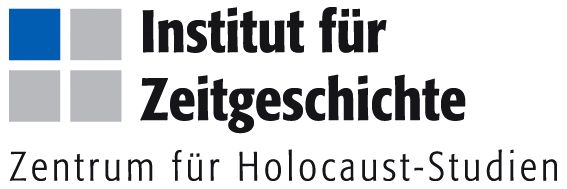 The Leibniz Institute for Contemporary History (IfZ) studies 20th and 21st century German history in its European and international contexts. The Center for Holocaust Studies at the IfZ not only engages in Holocaust research, but also offers fellowships and training.
The Leibniz Institute for Contemporary History (IfZ) studies 20th and 21st century German history in its European and international contexts. The Center for Holocaust Studies at the IfZ not only engages in Holocaust research, but also offers fellowships and training.
The Center for Holocaust Studies will lead the work on research and innovation strategy.
www.ifz-muenchen.de and www.holocaust-studien.de
King's College London (UK)
 King’s College London is a research university located in London and a constituent college of the University of London. KCL is represented in EHRI by the Department of Digital Humanities (http://www.kcl.ac.uk/artshums/depts/ddh/index.aspx). The Department is an international leader in the application of technology in research in the arts and humanities, and in the social sciences. It works at the intersection between research methods and practice, digital informatics and research infrastructure development. Key research areas are the theory and practice of digital libraries, digital archives and digital asset management; knowledge organisation and digital information management, through all stages of the digital lifecycle; researcher practices in the digital domain, including citizen and community engagement; ICT methods for digital scholarship and research, and the formalisation of research methods through the use of ICT; and e-research infrastructures and environments.
King’s College London is a research university located in London and a constituent college of the University of London. KCL is represented in EHRI by the Department of Digital Humanities (http://www.kcl.ac.uk/artshums/depts/ddh/index.aspx). The Department is an international leader in the application of technology in research in the arts and humanities, and in the social sciences. It works at the intersection between research methods and practice, digital informatics and research infrastructure development. Key research areas are the theory and practice of digital libraries, digital archives and digital asset management; knowledge organisation and digital information management, through all stages of the digital lifecycle; researcher practices in the digital domain, including citizen and community engagement; ICT methods for digital scholarship and research, and the formalisation of research methods through the use of ICT; and e-research infrastructures and environments.
KCL will lead the work on technical development and data management.
Dokumentačné Stredisko Holokaustu (DSH) (SK)
 Dokumentačné stredisko holokaustu (Holocaust Documentation Centre) in Bratislava was established as an independent institution in November 2005. The goal of the Center is to collect archival and other documents connected to the Slovak Jewish community and the Holocaust as well as to conduct research on these topics. In addition, it educates students and teachers about the Holocaust and phenomena associated with this era, such as anti-Semitism, xenophobia, intolerance and racism.
Dokumentačné stredisko holokaustu (Holocaust Documentation Centre) in Bratislava was established as an independent institution in November 2005. The goal of the Center is to collect archival and other documents connected to the Slovak Jewish community and the Holocaust as well as to conduct research on these topics. In addition, it educates students and teachers about the Holocaust and phenomena associated with this era, such as anti-Semitism, xenophobia, intolerance and racism.
The Holocaust Documentation Center leads the work on dissemination and communication.
Kazerne Dossin: Memorial, Museum and Research Centre on Holocaust and Human Rights, Mechelen (BE)
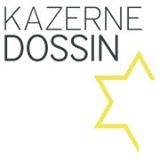
Kazerne Dossin is a place with great historical importance: from July 1942 up to the liberation in September 1944, the barracks (“kazerne”) functioned as a SS-Sammellager from which 25,800 Jews, Roma and Sinti were deported, mainly to Auschwitz-Birkenau.
After the end of the Second World War, the building again served its original purpose as a school for the administration of the armed forces. However, in 1975, this military institute moved, after which the Dossin barracks fell into disuse. This is why the complex was divided into apartments in the 1980s. Part of the building was also used as of 1995 for the former Jewish Museum of Deportation and Resistance. This museum was founded by a number of Jewish survivors, including the late Natan Ramet, and was inaugurated by King Albert II on 7th May of that year. The museum was a success from the outset, its permanent exhibition attracting 35,000 visitors a year. But as visitor numbers grew, it needed to expand. In 2001 the Flemish Government supported the plans for a new Holocaust and Human Rights Museum and put in place the financing to renovate and develop the museum site.
The new museum complex opened at the end of November 2012 and focuses on the Holocaust (Belgian case) and transposes the themes of mass violence and human rights to current day affairs. Kazerne Dossin’s Research Centre’s main objective is to preserve and digitize original documents and other records relating to the Holocaust.
Kazerne Dossin is involved in governance and legal work, sustainability and research and innovation strategy.
The Wiener Holocaust Library (UK)
 The Wiener Holocaust Library is one of the world's leading and most extensive archives on the Holocaust and Nazi era. Formed in 1933, the Library's unique collection of over one million items includes published and unpublished works, press cuttings, photographs and eyewitness testimony. The Library provides a resource to oppose anti-Semitism and other forms of prejudice and intolerance.
The Wiener Holocaust Library is one of the world's leading and most extensive archives on the Holocaust and Nazi era. Formed in 1933, the Library's unique collection of over one million items includes published and unpublished works, press cuttings, photographs and eyewitness testimony. The Library provides a resource to oppose anti-Semitism and other forms of prejudice and intolerance.
The library exists to serve scholars, professional researchers, the media and the public as a library of record and is a living memorial to the evils of the past, ensuring that its wealth of materials is put at the service of the future. The Wiener Holocaust Library aims to engage people of all ages and backgrounds in understanding the Holocaust and its historical context through an active educational programme and by communicating the accessibility, power and contemporary relevance of its collections as a national resource for those wishing to prevent possible future genocides.
The Wiener Holocaust Library is involved in governance and legal work, finance, sustainability and research and innovation strategy.
Elie Wiesel National Institute for the Study of the Holocaust in Romania (RO)
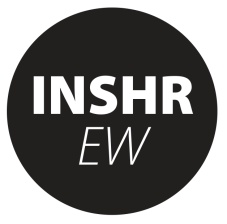 The Elie Wiesel National Institute for the Study of the Holocaust in Romania is a research institute located in Bucharest. It has several departments: research and editing, education and communication, library and archive, administration and accounting.
The Elie Wiesel National Institute for the Study of the Holocaust in Romania is a research institute located in Bucharest. It has several departments: research and editing, education and communication, library and archive, administration and accounting.
The Wiesel Institute conducts research projects and coordinates education and communication activities. It has the most important and complete archive containing official documents on the Holocaust in Romania, as well as a specialized library containing academic literature on the subject. In our archive, researchers can find over 1 mil. documents that come from the main archival sources regarding the Holocaust in Romania like: the National Archives of Romania, the Government Archives, the Ministries Archives, the Secret Services Archives, and the Romanian Jewish Federations Archives. Researchers, both Romanian and international, are given on-site access to the library and archive; over 400 students, BA, MA, and PhD, as well as national and international researchers accessed the Library and Archive since its creation.
The Wiesel Institute develops activities in the field of education (e.g. offering training in the area of fighting anti-Semitism, xenophobia and racism, and teaching about Holocaust to high school teachers), and in the field of communication (e.g. conferences, seminars, public debates, public reactions).
The Wiesel Institute is represented in EHRI by the Department of Research. The Research Department conducts projects in a broad area of subjects related to the Holocaust in Romania, with national and international funding, and in cooperation with different institutions and organizations from Romania and abroad. The Wiesel Institute will be involved in the work for communication, user, access and training strategy, and sustainability.
www.inshr-ew.ro I Facebook page
Wiener Wiesenthal Institut für Holocaust-Studien (VWI) (AT)
 The Vienna Wiesenthal Institute for Holocaust Studies (VWI) is a research centre dedicated to the research and documentation of and education on all aspects of antisemitism, racism, and the Holocaust, including its emergence and aftermath. It was designed by Simon Wiesenthal as well as international and Austrian researchers. The institute is located in Vienna, Austria.
The Vienna Wiesenthal Institute for Holocaust Studies (VWI) is a research centre dedicated to the research and documentation of and education on all aspects of antisemitism, racism, and the Holocaust, including its emergence and aftermath. It was designed by Simon Wiesenthal as well as international and Austrian researchers. The institute is located in Vienna, Austria.
VWI’s research activity focuses on own academic projects as well as on an extensive fellowship programme, which engages in intensive and on-going exchange with researchers in other institutions, thus ensuring constant scholarly innovation and consideration of new questions and innovative methods. VWI’s activity in the field of documentation centres on its own collections, namely the Holocaust-related parts of the archive of the Viennese Jewish Community, which are on loan to the institute, and the estate of Simon Wiesenthal with its extensive holdings on Nazi perpetrators, as well as the VWI library. Education is VWI’s third pillar of activity. Its intention is on the one hand to transfer the results of the research of the institute to a scholarly or an interested public by the means of conferences, workshops, lectures and other events, and on the other hand to ensure constant awareness for crimes against humanity, especially in the context of the Holocaust by interventions in the public sphere. VWI also publishes two book series and the e-journal S:I.M.O.N. – Shoah: Intervention. Methods. Documentation.
All activities build on the recommendations, suggestions, and initiatives made by an International Academic Advisory Board both in content and concept and in the selection of the fellows.
Mémorial de la Shoah / Shoah Memorial (FR)
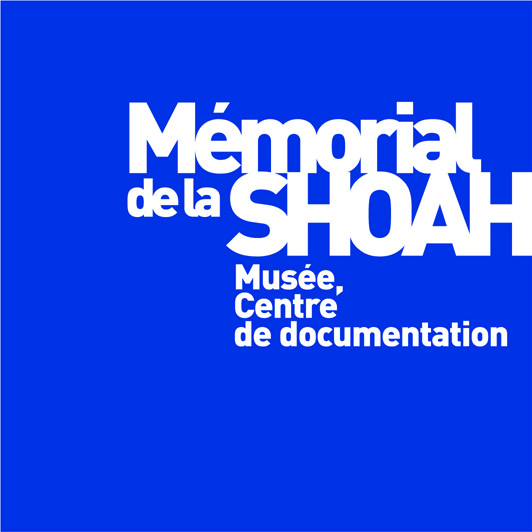 The Shoah Memorial is a documentation centre (the first and foremost collection of archives on the Shoah in Europe) and museum offering a variety of activities developing a fuller understanding of the history of the Jews during the Second World War. For ten years now, the Shoah Memorial has also been focusing on the history of two other 20th-century genocides, those of the Armenians and the Tutsi in Rwanda.
The Shoah Memorial is a documentation centre (the first and foremost collection of archives on the Shoah in Europe) and museum offering a variety of activities developing a fuller understanding of the history of the Jews during the Second World War. For ten years now, the Shoah Memorial has also been focusing on the history of two other 20th-century genocides, those of the Armenians and the Tutsi in Rwanda.
For EHRI, the Shoah Memorial will work as coordinator of relevant Holocaust institutions and archives in France, Spain, Switzerland and Luxembourg, by identifying their needs in regard to the handling of Holocaust-related collections, cataloguing, conservation, integration with the EHRI infrastructure. They will organise one conference in Paris on this subject. The institute will organise a methodological seminar on Holocaust research in close cooperation with a partner of an Eastern European country, whose target audience will include researchers and young scholars. The Shoah Memorial will also offer 30 weeks of fellowship to 12 applicants coming from all over the world (historians, Holocaust researchers, archivists and museum curators). The institute will facilitate the French speaking users of the EHRI virtual online infrastructure by supporting research users in case the automated helpdesk could not provide them satisfactory results.
Mémorial de la Shoah is involved in the work on sustainability.
Emanuel Ringelblum Jewish Historical Institute (PL) / Żydowski Instytut Historyczny im. Emanuela Ringelbluma (ŻIH) (PL)
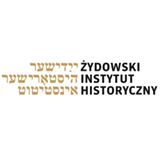 The mission of the Jewish Historical Institute is to spread knowledge about the heritage of the thousand years of Jewish presence on the Polish lands. The institution realizes its aim among others through presenting its collections as temporary and permanent expositions, organizing various kinds of artistic events, academic conferences and public education meetings, as well as educational and publishing activity.
The mission of the Jewish Historical Institute is to spread knowledge about the heritage of the thousand years of Jewish presence on the Polish lands. The institution realizes its aim among others through presenting its collections as temporary and permanent expositions, organizing various kinds of artistic events, academic conferences and public education meetings, as well as educational and publishing activity.
The Jewish Historical Institute will participate in the work on sustainability and user, access and training strategy.
United States Holocaust Memorial Museum (US)
 A living memorial to the Holocaust, the United States Holocaust Memorial Museum inspires citizens and leaders worldwide to confront hatred, prevent genocide, and promote human dignity through exhibitions, education, and scholarship. The Museum works closely with many key segments of society who will affect the future of our nation: professionals from the fields of law enforcement, the judiciary, and the military, as well as youth. The Museum also strives to build and preserve for posterity the fully accessible collection of record on the Holocaust.
A living memorial to the Holocaust, the United States Holocaust Memorial Museum inspires citizens and leaders worldwide to confront hatred, prevent genocide, and promote human dignity through exhibitions, education, and scholarship. The Museum works closely with many key segments of society who will affect the future of our nation: professionals from the fields of law enforcement, the judiciary, and the military, as well as youth. The Museum also strives to build and preserve for posterity the fully accessible collection of record on the Holocaust.
The Museum has made significant contributions to the EHRI Online Portal, and as an official partner of EHRI PP is involved in sustainability and technical development and data management.
www.ushmm.org/information/about-the-museum
National Research Council (CNR)/Consiglio Nazionale delle Ricerche (IT)
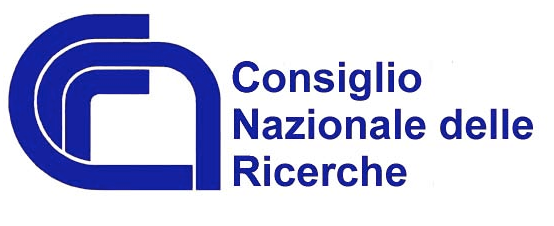 CNR is the largest public research institution in Italy under the Ministry for Education, University and Research. CNR performs multidisciplinary research activities and ensures large and effective European and International cooperation in all fields of knowledge, CNR is a long‐term stakeholder in the framework of the European projects with more than 700 projects funded in FP7 and more than 550 currently funded under H2020. CNR is an active member of the European Heads of the Research Councils association (EuroHORCs), of the European Science Foundation (ESF), and of Science Europe (SE). Social sciences and humanities, and cultural heritage have been investigated at CNR since the agency’s reform on 4th March 1963. CNR is the coordinator of the E-RHIS PP the European Research Infrastructure for Heritage Science.
CNR is the largest public research institution in Italy under the Ministry for Education, University and Research. CNR performs multidisciplinary research activities and ensures large and effective European and International cooperation in all fields of knowledge, CNR is a long‐term stakeholder in the framework of the European projects with more than 700 projects funded in FP7 and more than 550 currently funded under H2020. CNR is an active member of the European Heads of the Research Councils association (EuroHORCs), of the European Science Foundation (ESF), and of Science Europe (SE). Social sciences and humanities, and cultural heritage have been investigated at CNR since the agency’s reform on 4th March 1963. CNR is the coordinator of the E-RHIS PP the European Research Infrastructure for Heritage Science.
CNR is involved in governance and legal work, finance and implementation.
